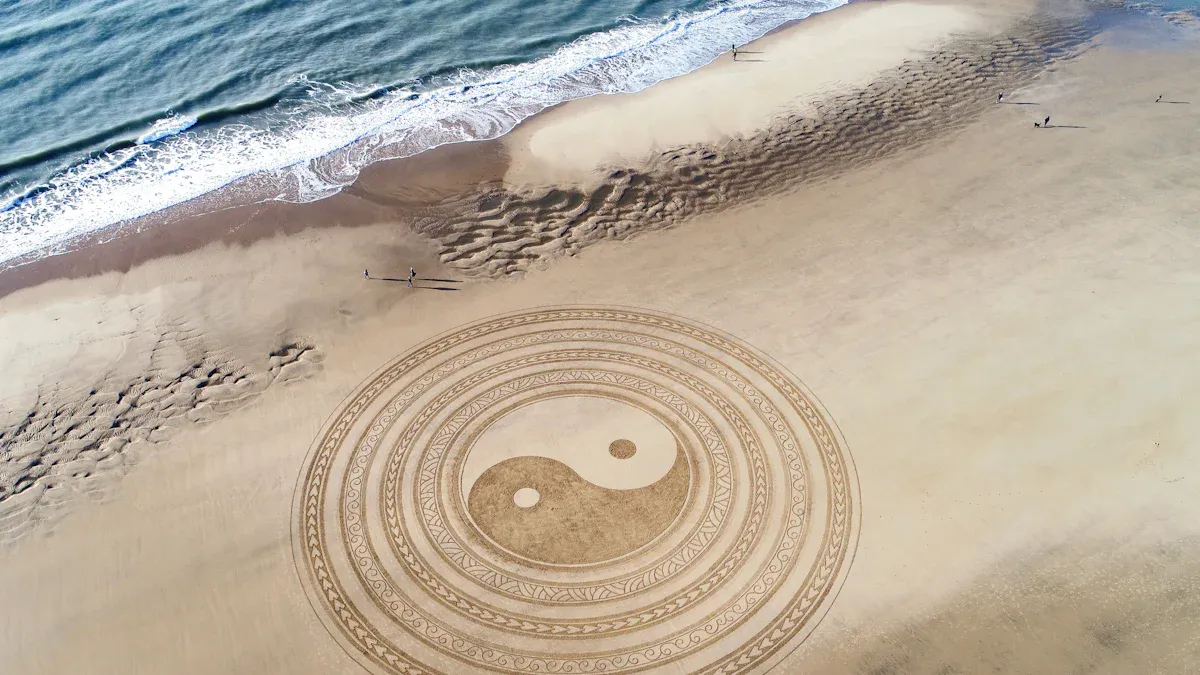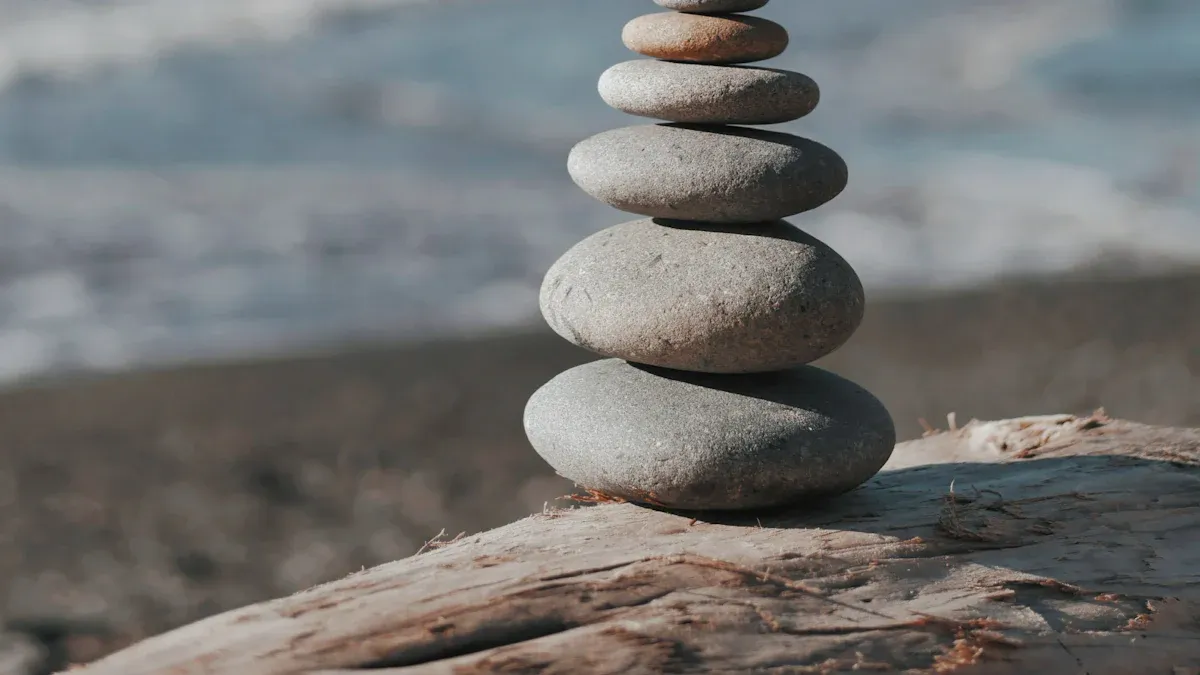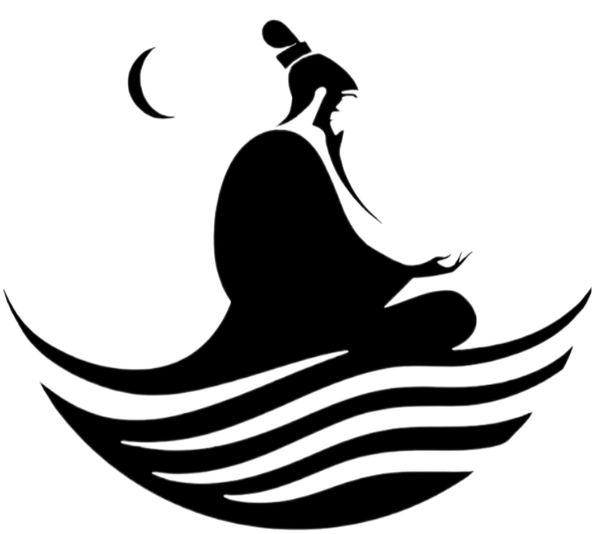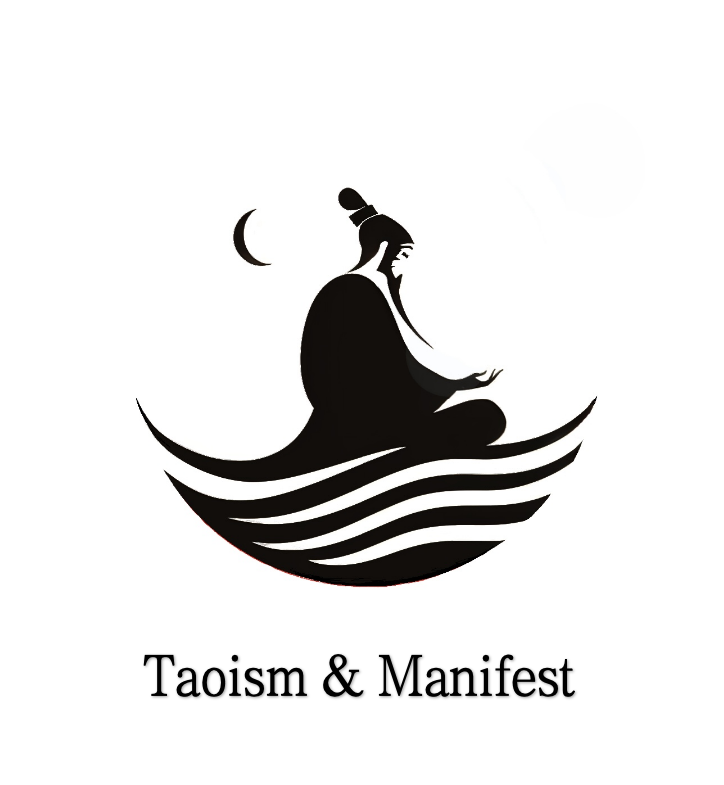
Does "going with the flow" mean someone should stop trying or just let life happen? Taoism offers a different answer. In the world of taoism, 顺其自然 describes a person who notices the right moment and adjusts with the tao. This idea does not suggest giving up. Instead, it encourages people to move with life’s changes as they appear.
Key Takeaways
Taoism teaches us to go with the flow of life. We should notice the right time to act and change when needed. We should not try to force things to happen. Wu Wei means to act in a calm and smart way. We do what is needed without stress or fighting. Being like water means we stay flexible and strong. We move around problems instead of fighting them. Mindfulness and simple habits help us stay calm each day. These habits lower stress and help us handle change better. Living with the Tao brings peace, balance, and harmony. We accept change and act with kindness and patience.
Taoism and Non-Action

顺其自然 in Taoism
顺其自然 stands as a core idea in taoism. This phrase means "following the course of nature." In the Tao Te Ching, Lao Tzu describes 顺其自然 as living in harmony with the natural current of life. He teaches that people should not force things or try to control every outcome. Instead, they should notice patterns in the world and respond with gentle, conscious adaptation. Taoism views humans as part of nature, not separate from it. When someone follows 顺其自然, they act effortlessly, letting events unfold in spontaneous forms. This approach does not mean giving up or being passive. It means learning the art of non-action by staying aware and flexible, ready to adjust when life changes.
The historical roots of 顺其自然 go back to the earliest Taoist texts. The Tao Te Ching explains that the tao is the source of everything. It encourages people to return to a natural state and to act in ways that match the flow of the universe. The idea of ziran, or "naturalness," shows that things work best when they happen by themselves, like a heart beating without effort. In daily life, 顺其自然 means paying attention to relationships, the environment, and the right moment to act or wait. This principle helps people find balance and peace by not forcing anything.
Wu Wei and Effortless Action
Wu Wei is another key teaching in taoism. Many people think non-action means doing nothing at all, but Wu Wei is different. Wu Wei means "not forcing anything" and acting in harmony with the tao. The Tao Te Ching says, "The way never acts, yet nothing is left undone." This shows that true action can happen without struggle. Wu Wei is about actionless action, where a person acts naturally and without extra effort.
Taoist texts give many examples of Wu Wei. The Tao Te Ching describes a perfect person who acts without acting, so everything gets done. The Zhuangzi tells stories of sages who find serenity by not pushing against the world. These stories show that Wu Wei is about effortlessness and letting things happen as they should. People who practice Wu Wei try without trying. They do what needs to be done, but they do not fight the natural current.
Taoist scholars explain that non-action is not the same as inaction. Wu Wei means choosing actions that fit the situation. For example, a farmer plants seeds at the right time and lets them grow. He does not pull on the plants to make them taller. In this way, Wu Wei is about wise, timely action. It is about knowing when to act and when to wait. This approach helps people avoid stress and find more peace in life.
Many Taoist schools teach that Wu Wei can help in daily life. People can use mindfulness, breathing, and paying attention to the present moment. In relationships, Wu Wei means listening and responding with kindness. At work, it means using natural talents and not forcing results. This way, Wu Wei brings balance and harmony.
Practicing Wu Wei also brings psychological benefits. People feel less stress and more fulfillment. They become more open and authentic. By letting go of control, they find ease and balance. The Tao Te Ching reminds everyone that by forcing less, people find more peace and order.
Wu wei even helps in high-pressure situations. For example, doctors and chess players who use Wu Wei make faster and better decisions. They feel calmer and make fewer mistakes. This shows that Wu Wei is not about doing nothing. It is about acting with skill and effortlessness, letting the tao guide each step.
Misconceptions About Doing Nothing
"Doing Nothing" vs. Laziness
Some people think "doing nothing" in Taoism means being lazy. This is not true. Taoist philosophy says "doing nothing" is not about avoiding work. It means acting when the time is right. Wu Wei is about moving with life’s flow, not forcing things. The Tao Te Ching says, “The Tao never acts, yet nothing is left undone.” This means you can get things done without stress by waiting for the right moment.
Sometimes, people see someone using Wu Wei and think they are lazy. For example, a person may wait before acting instead of rushing. Others might think this person does not care. But Taoism teaches that "doing nothing" means acting with purpose and clear mind. It is about being present and letting nature show what to do next. Western ideas often think "doing nothing" means not trying, but Taoism sees it as working with the world.
Water and Flexibility Metaphors
Taoist books use water to show how to be flexible. Water is soft and gentle, but it moves around anything. It helps everything without fighting or trying to win. Chuang Tzu wrote, “Nothing is softer or more flexible than water yet nothing can resist it.” This means water is strong because it can change and keep going.
Taoism says people should be like water. When life changes, water goes around rocks and keeps moving. It does not break or stop. This teaches us to be strong and act when needed. Bruce Lee, who learned Taoism, said to "be like water." He meant people should stay open and change when needed. Do not become stiff or stuck. In daily life, this means facing problems calmly and finding new ways. Water’s gentle flow shows how to solve problems with ease and kindness.
Applying Taoism in Life
Adapting to Change
Taoism teaches that life always changes. People who follow Taoist ideas learn to move with these changes instead of fighting them. They see change as a chance to grow. In modern life, this means staying open and flexible at work, at home, and in relationships. Leaders who use Taoist principles guide their teams with trust. They let others show creativity and do not control every step. This approach helps everyone work naturally and feel less stress.
Many people use mindfulness and meditation to handle uncertainty. These practices help them stay calm and focused. When someone faces a problem, Taoism suggests looking for the easiest path, just like water flows around rocks. This way, people can adapt with spontaneity and find new solutions. In workplaces, teams that value harmony and balance often adjust better to new situations. They create a culture where everyone feels safe to share ideas and try new things.
Tip: Embrace change by staying present and letting go of the need to control every outcome.
Practical Steps for Everyday Flow
Anyone can use Taoist ideas in daily life. Here are some simple steps:
Start each day with a few minutes of mindful breathing. This helps the mind stay clear and ready for new tasks.
Simplify your space and focus on one thing at a time. This makes it easier to work naturally and avoid feeling overwhelmed.
Notice your energy levels. Do important tasks when you feel most awake and alert.
Take breaks to reconnect with nature or practice gentle movement, like stretching or walking.
Trust your instincts and allow spontaneity to guide small choices, such as picking a new route to school or trying a new hobby.
People who practice these steps often feel less stress and more joy. They learn to act with spontaneity and respond to life’s changes with ease. Scientific studies show that present-moment awareness, like mindfulness, can lower stress and improve health. By following these Taoist practices, anyone can find a smoother, more balanced way to live.
Living with the Tao

Harmony and Acceptance
Taoism teaches that harmony comes from living in balance with the tao. People find peace when they stop fighting against life and start following the tao. Wu Wei helps people act without forcing things. When someone practices Wu Wei, they let go of control and allow events to unfold. This brings a sense of calm and contentment. Taoist wisdom says that acceptance means surrender to the natural flow. People who accept change and impermanence feel less stress. They enjoy the present moment and connect deeply with nature. Taoist texts encourage everyone to live simply and show kindness. Compassion and humility help people build strong relationships. In community life, Wu Wei means acting without ego and trusting the natural order. People who follow these ideas often feel fulfilled and at peace.
Taoism values simplicity and naturalness.
Harmony grows when people balance Yin and Yang in themselves and with others.
Wu Wei and surrender lead to inner peace and a sense of belonging.
Recognizing the Right Moment
Taoist philosophy explains that Wu Wei is not just about waiting. It is about knowing when to act and when to yield. People learn to watch for the right moment by staying alert and present. The story of the Taoist farmer shows the value of patience. He does not judge events too quickly. He waits to see how things unfold before acting. Taoist masters teach that Wu Wei means acting in harmony with the situation. They say that water flows around obstacles and never forces its way. People who practice Wu Wei stay flexible and open. They listen to their instincts and trust the rhythm of life. Living according to the tao means responding to change with care and clarity. Following the tao helps people make wise choices and avoid unnecessary struggle.
Tip: Like water, stay soft and adaptable. Wu Wei guides each step, helping people move with life’s flow.
Taoist wisdom teaches us to notice what is happening. We should know when to wait and when to act. People who follow 顺其自然 have goals and can change when needed. They are not lazy. Many people feel better by doing easy things like breathing slowly, moving gently, and being kind. Stories and research say these habits help people feel calm and happy. They also help people feel more part of life. Anyone can use these ideas and find an easier and happier way to live.
FAQ
What does "going with the flow" mean in Taoism?
Taoism teaches that "going with the flow" means following the tao and adapting to the natural current of life. People act effortlessly and respond to changes with spontaneity. This core idea in taoism helps people find peace and balance.
Is "non-action" the same as doing nothing?
Non-action in taoism does not mean doing nothing. It means practicing Wu Wei, or actionless action. People try without trying and act only when the time feels right. This approach encourages wise strategic passivity, not laziness.
Why does Taoism use water as a metaphor?
Taoism uses water to show how to be flexible and strong. Water moves around obstacles and never forces its way. People who be like water can work naturally and solve problems with effortlessness and kindness.
How can someone practice Wu Wei in daily life?
People can practice Wu Wei by embracing Wu Wei and not forcing anything. They can act effortlessly, stay present, and let events unfold in spontaneous forms. Living according to the tao means trusting the right moment for action.
Does Taoism suggest people surrender to everything?
Taoism teaches surrender to the flow of life, not giving up. People learn the art of non-action and follow the tao. They accept change and act when needed, finding harmony and contentment.






